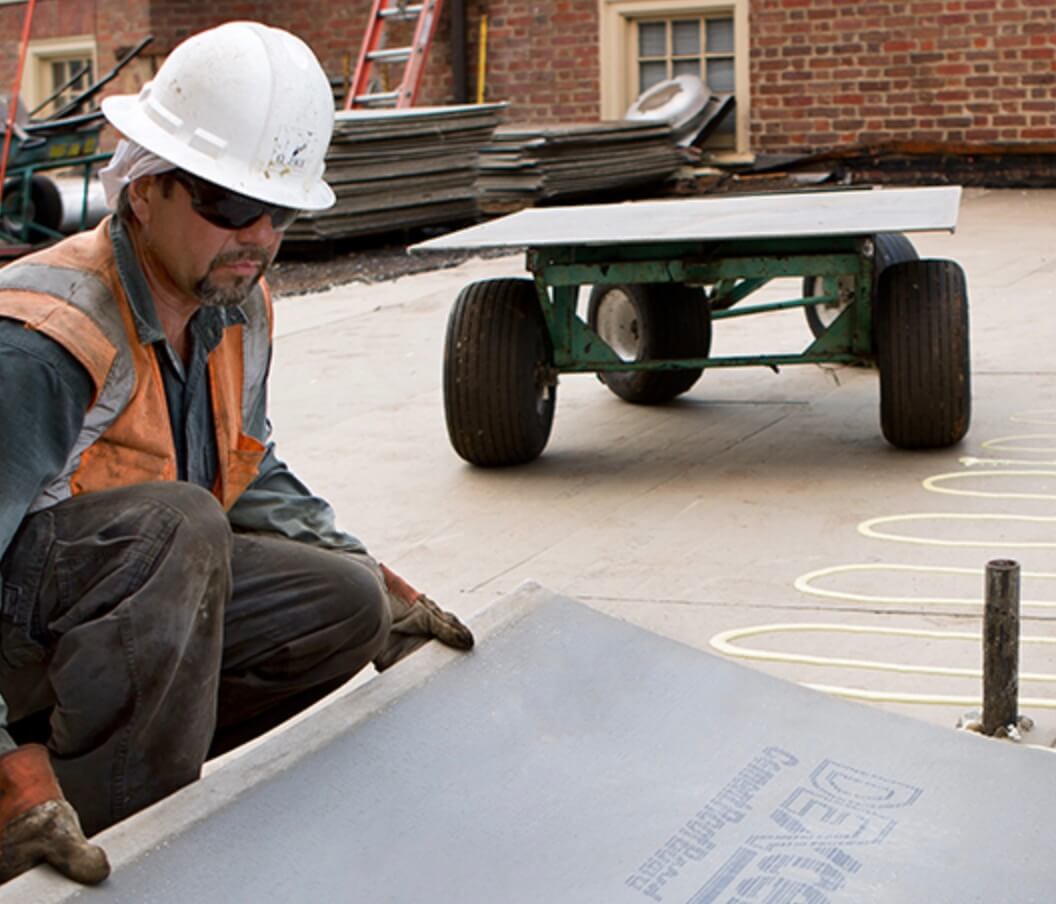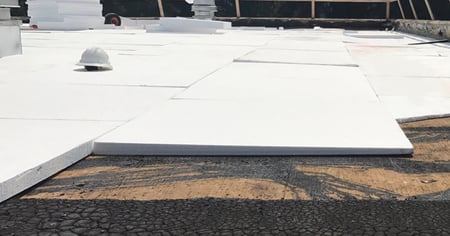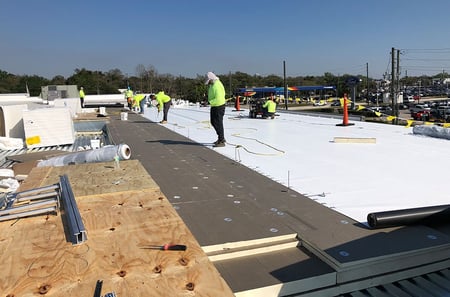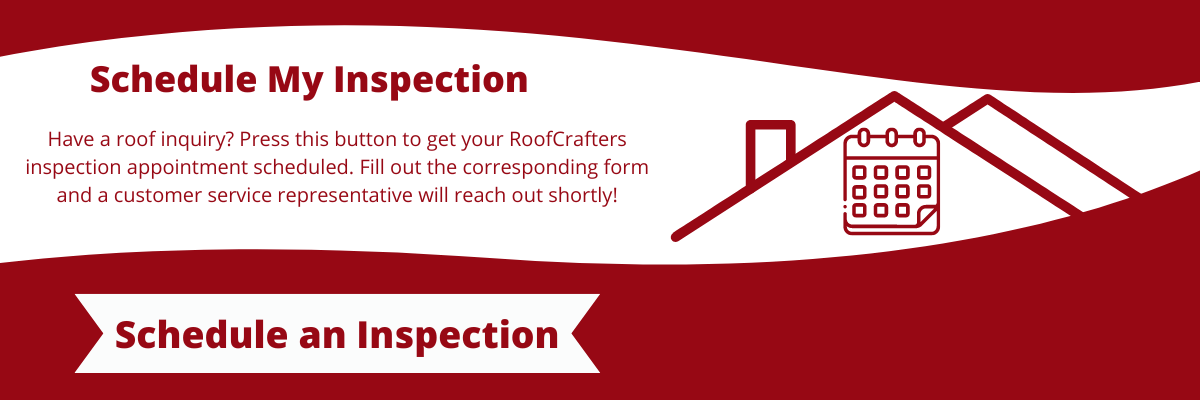
When embarking on a commercial flat roof project, the temptation to opt for cheaper materials or contractors to cut costs can be enticing. However, while upfront savings may appear attractive, it's crucial to carefully consider the long-term implications of such decisions.
At RoofCrafters, we know that the choice of materials and the contractor tasked with installation are pivotal factors that directly impact the durability, performance, and overall success of the project.
So, let’s delve into the risks associated with using cheap materials and contractors for commercial flat roofs, emphasizing the importance of prioritizing quality, reliability, and expertise to achieve optimal results and safeguard long-term investments. Ready to get started?
Can I Use Cheaper Material For My Commercial Flat Roof?
While it might be tempting to use cheaper materials for your commercial flat roof to save money upfront, it's important to consider the long-term implications. Here are a few factors to consider:
Durability: Cheaper materials may not last as long as higher-quality ones. This could result in more frequent repairs or even replacement, which could end up costing you more in the long run.
Performance: Lower-quality materials may not perform as well in extreme weather conditions or under heavy foot traffic. This could lead to leaks, damage, or other issues that could disrupt your business operations.
Energy efficiency: Higher quality roofing materials may offer better insulation properties, helping to reduce heating and cooling costs over time. Cheaper materials may not provide the same level of energy efficiency.
Warranty and support: Higher quality materials often come with longer warranties and better support from the manufacturer. This can provide peace of mind and potentially save you money on repairs or replacements down the line.
Aesthetics: Cheaper materials may not offer the same aesthetic appeal as higher-quality options. This could impact the overall appearance of your building and potentially affect its market value.
Ultimately, it's important to weigh the upfront cost savings against the potential long-term expenses and risks associated with using cheaper materials for your commercial flat roof. Investing in higher-quality materials may offer better performance, durability, and peace of mind in the long run. Additionally, consulting with a roofing professional can provide valuable insights and recommendations based on your specific needs and budget.
Which Material Is Best for My Commercial Flat Roof?

When it comes to the two front runners for the most popular commercial flat roofing choices, TPO (Thermoplastic Polyolefin) and PVC (Polyvinyl Chloride) are both popular materials used in commercial flat roofing systems. Here's a comparison between the two:
Material Composition
TPO: TPO is a blend of polypropylene and ethylene-propylene rubber. It is typically reinforced with polyester or fiberglass.
PVC: PVC is made from polyvinyl chloride, with added plasticizers and stabilizers to enhance flexibility and durability.
Durability
TPO: TPO is known for its durability and resistance to punctures, tears, and UV radiation. It typically has a longer service life compared to PVC.
PVC: PVC is also durable and resistant to chemicals, but it may be prone to brittleness over time, especially in extreme temperatures.
Installation
TPO: TPO membranes are typically installed using heat welding techniques or adhesives. They are generally considered easier to install than PVC.
PVC: PVC membranes are also installed using heat welding or adhesives. They may require slightly more skill to install compared to TPO.
Flexibility
TPO: TPO is known for its flexibility and ability to accommodate building movement without cracking or splitting.
PVC: PVC is also flexible, but it may become less flexible over time, especially in cold climates.
Cost
TPO: TPO membranes are often considered more cost-effective than PVC, making them a popular choice for budget-conscious projects.
PVC: PVC membranes are generally more expensive than TPO, but they may offer longer-term benefits in terms of durability and performance.
Environmental Impact
TPO: TPO is considered more environmentally friendly than PVC because it doesn't contain chlorine, which can be harmful to the environment.
PVC: PVC production and disposal can have environmental implications due to the presence of chlorine and other additives. However, PVC membranes can be recycled in some cases.
Ultimately, the choice between TPO and PVC will depend on factors such as budget, performance requirements, environmental considerations, and installation preferences. It's advisable to consult with a roofing professional to determine the best option for your specific project.
Should I Hire a Cheaper Contractor for My Commercial Flat Roof Project?

Hiring a contractor for your commercial flat roof project solely based on price isn't always the best approach. While cost is certainly an important factor, it's equally crucial to consider the contractor's reputation, experience, qualifications, and the quality of their work. Here are some points to keep in mind:
Quality of work: Cheaper contractors may cut corners or use lower-quality materials to offer lower prices. This could result in subpar workmanship and potential issues with your roof in the future, leading to costly repairs or replacements.
Experience and expertise: Experienced contractors typically command higher prices due to their expertise and track record of successful projects. They may be better equipped to handle complex commercial roofing projects and ensure the job is done correctly the first time.
Reputation and references: Consider the contractor's reputation within the industry and their track record with previous clients. Ask for references and follow up with them to gauge their satisfaction with the contractor's workmanship, communication, and professionalism.
Insurance and licensing: Ensure that the contractor is properly licensed, bonded, and insured. This protects you from liability in case of accidents or property damage during the project.
Warranty and guarantees: Cheaper contractors may offer limited warranties or guarantees on their work, which could leave you vulnerable if issues arise later on. It's important to clarify the terms of the warranty and what is covered before signing any contracts.
Communication and timeliness: Clear communication and adherence to deadlines are crucial for the success of any construction project. Ensure that the contractor is responsive to your inquiries and has a reputation for completing projects on time and within budget.
Comparative quotes: While cost shouldn't be the sole determining factor, it's still advisable to obtain quotes from multiple contractors to compare pricing and scope of work. Be wary of significantly lower bids, as they may indicate potential compromises in quality or reliability.
Your Choice of Contractor Matters
All in all, opting for cheaper materials or contractors for a commercial flat roof project may seem financially appealing initially, but it often poses significant risks and drawbacks in the long term. While cost is undoubtedly a factor to consider, prioritizing quality, reliability, and expertise can ultimately yield better results and save both time and money over the lifespan of the roof.
Using cheaper materials may compromise the durability, performance, and energy efficiency of the roof, leading to frequent repairs, premature replacement, and increased maintenance costs. Similarly, hiring a contractor solely based on price may result in subpar workmanship, inadequate communication, and potential liability issues.
Investing in higher-quality materials and experienced contractors can provide greater peace of mind, ensure the longevity and functionality of the roof, and minimize the likelihood of costly repairs or replacements down the line. Additionally, reputable contractors like Roofcrafters often offer warranties, guarantees, and superior customer service, which you can experience when you hit the “Schedule an Inspection” button down below!
At RoofCrafters, our mission is to provide job opportunities for others to thrive and grow while making a meaningful impact within our communities.



